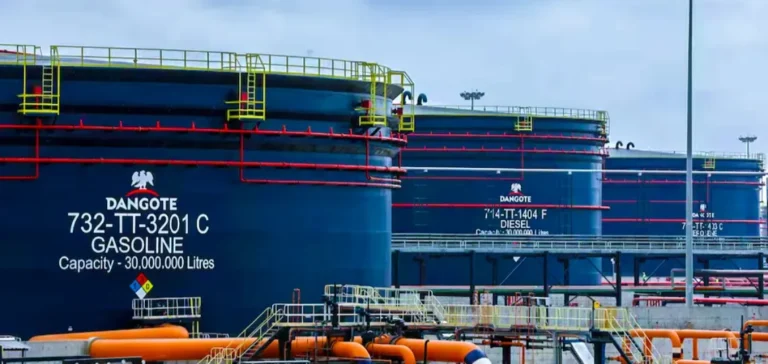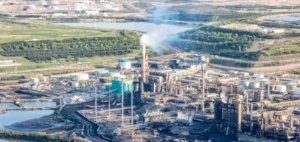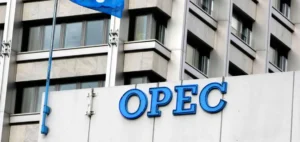Dangote Group’s refinery reached a new milestone in its international expansion with the shipment of its first gasoline cargo to the United States, departing from Lekki port on August 26. According to shipping data, the vessel Gemini Pearl is carrying around 300,000 barrels of fuel to New York and New Jersey, with arrival expected on September 12. This marks the first such shipment to the North American market since the refinery began operations in 2024.
Three market sources confirmed that the cargo was contracted under a private deal, outside the usual tenders used for other products such as residual fuel. The transaction reflects a broader strategy to diversify commercial outlets, as the refinery had so far focused on supplying African and Asian markets.
A strategy focused on targeted exports
The Dangote complex, with a capacity of 650,000 barrels per day (b/d), was designed to meet Nigeria’s domestic gasoline demand of around 300,000 b/d. At an 85% utilisation rate, the facility could produce roughly 210,000 b/d, a level insufficient to fully cover local consumption. Nevertheless, the company pursues a commercial approach that allows it to channel part of its volumes toward markets offering higher margins.
Since late 2024, the refinery has increased exports to Cameroon, Ghana, Angola and South Africa, sometimes through international traders such as Trafigura and Vitol. Group Vice President Devakumar Edwin had identified North and South America as strategic export destinations in the medium term.
Capacity, constraints and commercial trade-offs
In June 2025, gasoline exports from the refinery peaked at about 90,000 b/d, with shipments to Oman, Singapore and Malaysia. However, several technical outages and maintenance work on the residue fluid catalytic cracker (RFCC) unit disrupted production, reducing volumes available for export.
In addition, under a swap agreement between the Nigerian government and the refinery, known as the “naira-for-crude” deal, the company is required to supply a fixed share of its production to the domestic market. This obligation may limit export expansion in the short term, despite the company’s intent to optimise margins abroad.
The United States, an opportunistic but constrained market
The US market, which imported about 630,000 b/d of gasoline in the second quarter of 2025, could become a strategic outlet for Nigerian production. Regulatory flexibility on sulphur content, with an average limit of 10 ppm but higher short-term tolerances, enables acceptance of cargoes such as the one shipped by Dangote.
In April, the extension of approval for E15 blends, containing up to 15% ethanol, also facilitated entry of higher-sulphur gasoline through dilution processes. African refiners therefore gain easier access to a demanding but potentially profitable market.






















